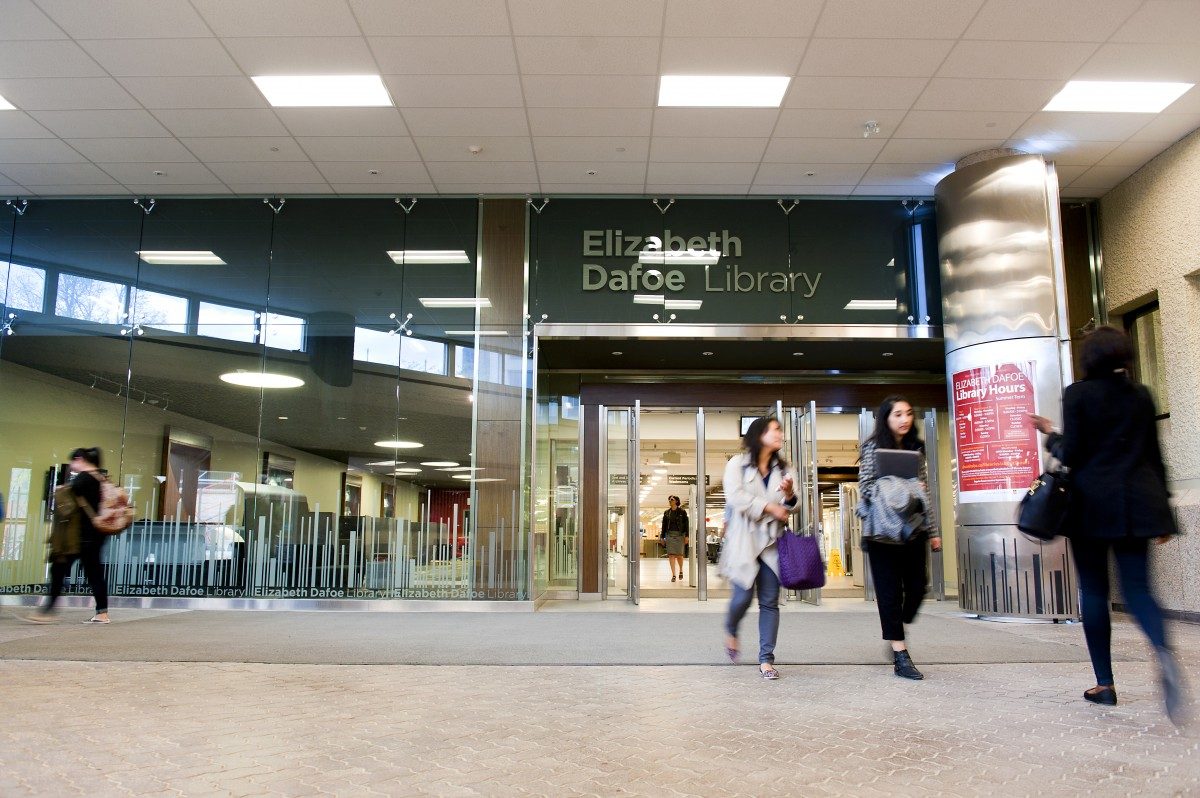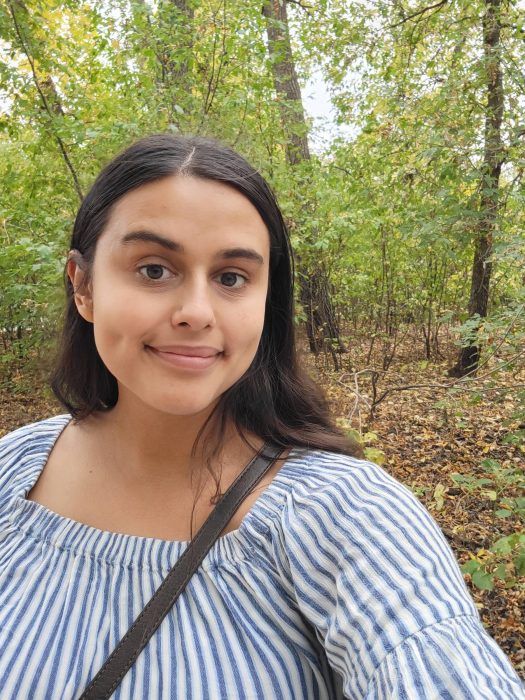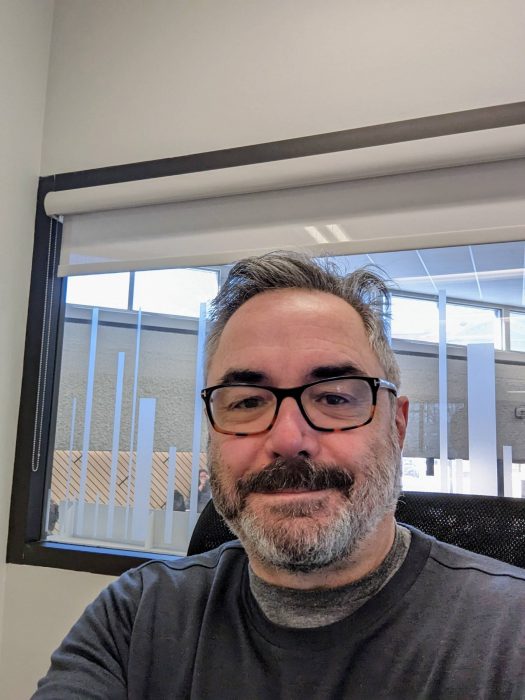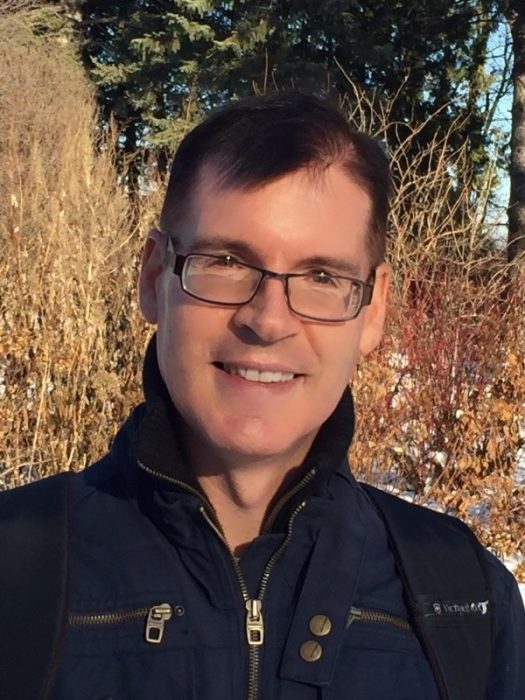
More than what meets the eye: A Career in Library Science
UM Indigenous Intern Chloe Touzin interviews three professionals in library science
“I have seen huge advances in technology. The biggest difference has been the availability of vast amounts of information on the internet, including social media. Mis- and dis-information makes Librarians even more important to help customers find relevant, factual, and current information.” – Chris Laurie, Outreach Librarian at Winnipeg Public Library
When most people think of librarians, the profession is often confined to what they might have seen growing up going to their school library or local public library. However, the librarianship profession is actually more expansive than that perception. People with all sorts of intersecting professional experience, and unique interests become librarians, with plenty of varying opportunities in both the private and public sector. This can take the shape of librarians specializing in accessing and evaluating information related to music, film, law, health sciences, amongst other specialty areas. As well as managing information and collections, they also engage a great deal with the public. To support students in gaining more insight on a career in library science, we interviewed 3 librarians. These interviews highlight what librarians do, what they enjoy about librarianship, and their journey to and within the profession.
To become a librarian students complete a master’s degree in library and information studies (MLIS) or library science, or a master’s degree that has been accredited by the American Library Association (NOC Canada). This is often a requirement for positions. While the University of Manitoba doesn’t currently have a Master of Information and Library Studies program, students can complete any undergraduate degree (4-year degree) at UM as a prerequisite for masters degrees at other schools.
The University of Manitoba also has a unique opportunity for Indigenous students, offering Indigenous students an internship opportunity with UM Libraries while they complete an online MLIS degree online. For information on this opportunity, view the UM News article on the Indigenous Librarian Internship, or contact UM librarian Lyle Ford: Lyle.ford@umanitoba.ca.
For more detailed information about this occupation, including education program lists and labour market information, please visit the Librarian profile page within Career Service’s Occupational Library. You might also wish for connect with a librarian mentor through the Career Mentor Program or Indigenous Career Mentor Program. UM students looking for career planning or job search support can book an appointment anytime with a Career Consultant.
Career Services indigenous intern Chloe Touzin interviewed 3 librarians to ask them about their career journey and what advice they have for students and Indigenous students interested in a career in library science.

Claire Settee (she/her), Indigenous Librarian with UM Libraries | “I have always loved libraries and see them as a central part of communities. Sharing information and resources with people is something I am passionate about…”
Briefly describe what you do:
Lyle – My overall responsibility is collection development and Indigenous engagement.
Chris – My position as Outreach Librarian includes presenting on WPL resources to various organizations, in-person and online, and leading follow-up tours. I’m also responsible for volunteer recruitment, coordinating offsite library visits including the Mobile Library, select for a Home Service customer, and various other duties.
Claire – I am learning about libraries while attending library school online through the University of Alberta. I will be helping in libraries across campus with jobs relating to what I am studying in library school as well as jobs that just need extra hands and brains. I am also in the process of planning projects for promoting Indigenous engagement and cultural awareness in UM libraries and building and enriching the UofM Indigenous community. I am working on ways to make our libraries a safe space for Indigenous students and communities and thinking about how to make our resources and services more accessible for them.
What initially sparked your interest in the career you have chosen for yourself?
Lyle – A love of books, a desire to help people, and interest in working in the non-profit sector.
Chris – I actually was envious of other students in high school who knew what career path they wanted to follow. I had no idea what I wanted to do. I heard the local library was hiring shelvers, so started there, and found out I loved working with books and people. As I proceeded with my education, I moved up from shelver to reference assistant, and then Librarian.
Claire – I have always loved libraries and see them as a central part of communities. Sharing information and resources with people is something I am passionate about, as it is integral to self-responsibility and education. I also just love the quiet cozy environment libraries provide that let people get lost in reading.

Lyle Ford (he/him), Associate University Librarian, Indigenous Engagement with UM Libraries & Mentor with the UM Indigenous Career Mentor Program | “It’s fascinating work, trying to change things so that Indigenous folx can use library resources in a safe, respectful way”
What are the lesser-known things about Library Sciences?
Lyle – It involves working with many people in a variety of ways. I’m fairly introverted, but I’ve learned to stretch myself so I can serve information needs of disparate groups.
Chris – For me, it was eye-opening to learn that my MLIS Degree opened up quite a variety of career options: Public Librarian, Academic Librarian, Archivist, Research Analyst, Digital Librarian, Law Librarian etc.
Claire – Libraries have become a lot more focused on the digital side, so anything you can think of relating to technology is important to libraries. For example, you can learn how to use different scanning software for digitizing books and coding for programming webpages.
What do you enjoy most about your job?
Lyle – Constant learning, and it allows me to share what I’ve learned.
Chris – It brings together two of my passions: working with people, and working with books. Also, I love the sheer variety of tasks being an Outreach Librarian entails. As an example: One day I can lead a specialized newcomer tour of the library in the morning, and deliver an offsite baby rhyme time to new mothers in the afternoon. Another day, I can deliver an online library presentation in the morning, followed by editing content on the library’s website.
Claire – Being able to work with so many different faculties and departments, everyone needs libraries.
What are some of the changes you’ve experienced in your field, or changes you anticipate happening in the near future?
Lyle – Electronic books and journals have changed what we do greatly, but the overall aim is the same: organize and deliver content.
Chris – I have worked for Winnipeg Public Library for many years, and have seen huge advances in technology. The biggest difference has been the availability of vast amounts of information on the internet, including social media. Mis- and dis-information makes Librarians even more important to help customers find relevant, factual, and current information.
Claire – I think with technology taking over routine tasks librarians will have more time to focus on engaging with community to help with research. I can see more of librarians building relationships with people and talking about using materials and resources instead of focusing on searching for them.

Chris Laurie (he/him), Outreach Librarian at Winnipeg Public Library & Mentor with the UM Career Mentor Program | “…it was eye-opening to learn that my MLIS Degree opened up quite a variety of career options: Public Librarian, Academic Librarian, Archivist, Research Analyst, Digital Librarian, Law Librarian etc.”
What are some strengths, specialties, and characteristics that are considered assets in your field, or unique ones you bring to the table?
Lyle – Curiosity, patience, calmness, and clear communication.
Chris – A love of working with people (and therefore people-skills, including positive attitude, tact, de-escalation skills, etc.), a love of books, curiosity, broad overall knowledge, strong organizational skills, computer skills, all would be at the top of the list.
Claire – Kindness and compassion are a key part of service for library patrons. But personally, I am a creator and like to work together to bring new ideas to life, which is important for the ongoing innovation of libraries.
What is a piece of advice you would offer to Indigenous students interested entering your field?
Lyle – It’s fascinating work, trying to change things so that Indigenous folx can use library resources in a safe, respectful way. Change is tough in big organizations, so I’d counsel patience and determination, along with preserving autonomy. You have to be careful, or you’ll be put on every committee – be choosy and strategic.
Chris – Definitely go for it! There is a huge demand for Indigenous staff in public libraries: including Reference Librarians, Social Workers, members of committees (Anti-Oppression, Indigenous Services etc.), in Cataloguing, and other areas. And look around for scholarships. They are out there and really help. I was fortunate to receive the University of Manitoba’s John Edwin Bissett Scholarship.
Claire – It is so important for Indigenous people to take up space in colonial institutions. Being a central hub for information sharing is a chance to include our worldview, histories and dreams in places and conversations where we were excluded from for too long. There is a severe lack of diversity in libraries, but Indigenization, decolonization and reconciliation is possible if the right people are there to do it.
Are there any resources you feel could support Indigenous students interested in this career path?
Lyle – The Oskâpêwis Mentorship Group is a fantastic resource of new and more established library workers.
Chris – Absolutely! A great place to begin is the University of Manitoba’s amazing Student experience programs. There are additional supports. Here are a few: Province of Manitoba resources for residents, the Government of Canada has a Post-Secondary Student Support Program, and Indspire.
Claire – The Council of prairie pacific university libraries has a mentorship program called Oskâpêwis that promotes Indigenous lifeways, it is for Indigenous library students.
Within your industry or field, what are some related occupations that you interact with and/or find interesting?
Lyle – Archives, museums, and publishing.
Chris – Many of our contacts are public school teacher’s. Teaching and Librarianship are quite similar in that we connect folks with the information they required. As an Outreach Librarian I also am in contact with non-profit community organizations.
Claire – As an Indigenous librarian I collaborate with the Indigenous Studies department to implement my projects on campus. But I also work with Elders and knowledge keepers to talk about community needs and visions for the future.
During your career journey, what supports have influenced your decision-making process?
Lyle – I received small student grants from the Prince of Wales/Princess Anne awards, and scholarships from the Manitoba Library Association, and from the University of Alberta. Apply for everything! You never know what you’ll get.
Claire – Being mindful of my passions and interests through self-discovery and self-care rituals has been important for paying attention to what brings me long term fulfillment. Along with seeking out community wherever I am whether it be online, at school, or in my neighborhood, and being able to talk through things, get advice or encouragement and having someone to be proud and believe in you.






